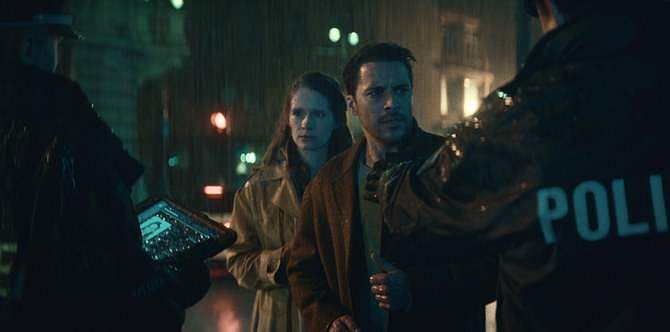Margaret Atwood, in her bestselling novel The Handmaid's Tale, wrote, "Better never means better for everyone, it always means worse for some." Behind every impossibly radical way of living — be it the creation of Gilead in The Handmaid's Tale or Aeon, the company in Paradise that allows for 'age-transplants' — there is a seed of purported revolution, aided with the proverbial good intentions that pave the way to hell. This is probably why the Boriz Kunz directorial is ironically named Paradise.
Director – Boris Kunz
Cast – Kostja Ullman, Iris Berben, Corinna Kirchhoff, Lorna Ishema
Streaming on: Netflix
Language: German
There is much political commentary surrounding 'chrono transfers' in this film. On the one hand, you have Aeon's founder Sophie Thiessen, who comes up with this technology to save her daughter from Progeria (the disorder Amitabh Bachchan's character Auro suffered from in R Balki's Paa). But you see her use chrono transfers to advocate for a brand of meritocracy-driven eugenics. What if Mozart, who died at 35, gets to live till he is 200? Wouldn't humanity be all the richer for it? It sounds like a fair question, till the movie exposes you to the flip side. There are refugees in camps being persuaded to sell their years for citizenship. In the Berlin of Paradise, folks can forfeit their ages as collateral for loans and to escape incarceration. The Paradise in the title could also be a reference to Max's marriage to Elena. Their happy marriage, their paradise, gets lost when Elena is forced to pawn 40 years off of her life. With their whole plan to grow old together literally jeopardised, they find themselves on a hunt to reverse their situation.
Paradise succeeds in making you think about ideas and philosophical dilemmas. Just because you get wronged, does that give you a right to wrong others? Can people absolve themselves of larger ethical consequences by citing free will? What even is the value of free will in a world where power dynamics are skewed to a painful extreme? There is also a not-so-subtle message in Paradise on how private corporations will go on to yield enough, and sometimes more, power than the government itself.
The film is tense and cruel, offering no moments of respite and joy to its viewer. For a film so committed to its stance against major corporations getting away with severe crimes, the fringe organisation shown in the film is laughably unidimensional. What is their story, their reason to fight against Aeon, apart from the rather ubiquitous 'all humans are equal' spirit? The latter half of Paradise turns into a goose chase involving two nations and three parties, which takes away from the heart of the film and its ever-pertinent questions and turns it into a ticking time bomb quest. But credit where it is due to the makers, the film ends on a note consistent with its intent at large. But by the time the film ends, you leave with many more questions than the ones the film has posed so far, and that could have probably been prevented with the help of a longer format or/and stronger writing.

#Paradise #Movie #Review #Touch #Dystopia

